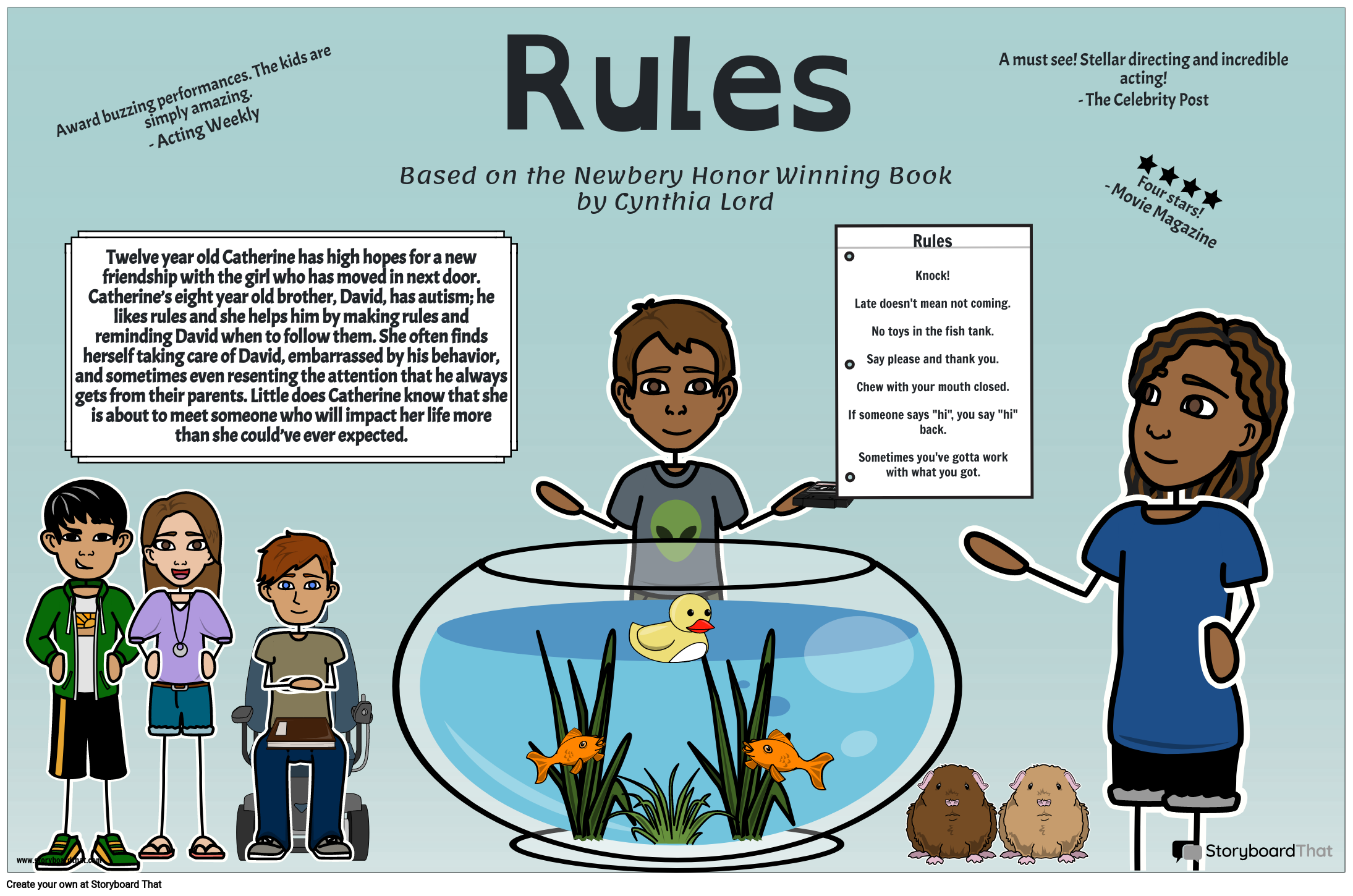Ever wondered what goes on behind the scenes of movie production? Movie rules are the unsung heroes that keep the industry running smoothly. Whether you're a filmmaker, an aspiring actor, or just a movie buff, understanding these regulations can be a game-changer. From permits to copyright laws, there's a whole lot to unpack. So, buckle up and let's dive deep into the world of film rules!
Now, let's face it—movies don't just magically appear on the big screen. There's a whole lot of legal mumbo jumbo involved. And trust me, it's not as boring as it sounds. These rules are designed to protect everyone involved in the filmmaking process. They ensure that creators get their due credit, audiences aren't misled, and everything runs like a well-oiled machine.
So, whether you're planning to produce your first short film or simply want to understand why some movies get banned, this guide has got you covered. We'll break down everything you need to know about movie rules in a way that's both informative and easy to digest. Let's get started!
- 9xmovies Biz Your Ultimate Guide To Streaming Movies Safely And Legally
- Pining For Kim Trailblazer A Journey Through Passion Legacy And Inspiration
Table of Contents
- What Are Movie Rules?
- Types of Movie Rules
- Film Censorship and Ratings
- Copyright Laws in the Film Industry
- Production Permits and Location Rules
- Actors' Rights and Regulations
- International Film Regulations
- How to Comply with Movie Rules
- Common Mistakes to Avoid
- The Future of Movie Rules
What Are Movie Rules?
Movie rules are basically the guidelines and regulations that govern the film industry. Think of them as the traffic lights of filmmaking—they keep everything organized and safe. These rules cover everything from content creation to distribution. They're designed to protect intellectual property, ensure fair treatment of workers, and maintain ethical standards in the industry.
For example, if you're shooting a movie in a public place, you'll need a permit. If you're using someone else's music in your film, you'll need to get the rights. And if you're releasing a movie for kids, it better not have any graphic violence. These are just a few examples of the many rules that filmmakers have to follow.
- Tim Scotts First Wife Unveiling The Untold Story
- Alice Coopers Net Worth A Deep Dive Into The Rock Legends Financial Empire
Now, you might be wondering why all these rules exist. Well, it's simple. Without them, the film industry would be a chaotic mess. Imagine a world where anyone could copy a movie and sell it as their own. Or where filmmakers could shoot wherever they wanted without permission. It'd be utter chaos. That's why movie rules are so important—they bring order to the creative chaos.
Types of Movie Rules
Content Regulations
Content regulations are all about what you can and can't show in a movie. They vary from country to country, but generally, they focus on things like violence, nudity, and language. For instance, some countries have strict rules against showing smoking in movies aimed at kids. These rules are enforced by censorship boards, which rate films based on their content.
Financial Regulations
Financial regulations deal with the money side of filmmaking. This includes things like taxes, royalties, and funding. Filmmakers need to be aware of these rules to avoid legal issues. For example, if you're shooting a movie in a foreign country, you'll need to comply with their tax laws. And if you're using public funding, you'll have to follow specific guidelines on how the money is spent.
Technical Regulations
Technical regulations cover the nitty-gritty of filmmaking. This includes things like sound levels, aspect ratios, and color grading. These rules ensure that movies are technically sound and meet industry standards. For example, if you're submitting a movie to a film festival, it needs to meet certain technical requirements to be considered.
Film Censorship and Ratings
Film censorship is one of the most important aspects of movie rules. It's all about ensuring that movies are appropriate for their intended audience. Censorship boards rate films based on their content, assigning ratings like G, PG, R, and NC-17. These ratings help parents decide whether a movie is suitable for their kids.
But censorship isn't just about protecting kids. It also ensures that movies don't promote harmful behavior or offensive content. For example, a movie that glorifies violence might be banned or given a higher rating. And while some people argue that censorship stifles creativity, it's important to remember that it's all about striking a balance between artistic freedom and social responsibility.
Copyright Laws in the Film Industry
Copyright laws are crucial in the film industry. They protect the intellectual property of filmmakers, ensuring that they get credit and compensation for their work. Without copyright laws, anyone could copy a movie and sell it as their own. That's why it's so important for filmmakers to understand these laws and register their work.
But copyright isn't just about protecting movies—it also applies to things like scripts, music, and even character designs. For example, if you're making a movie based on a book, you'll need to get the rights from the author. And if you're using someone else's music in your film, you'll need to get a license. It might sound complicated, but it's all about ensuring that everyone gets their fair share.
Production Permits and Location Rules
Production permits are another important aspect of movie rules. If you're shooting a movie in a public place, you'll need to get a permit from the local authorities. This ensures that your shoot doesn't disrupt public life and that you're following local regulations. For example, if you're filming in a busy city street, you'll need to make sure that traffic isn't affected.
Location rules are also important to consider. Some places have strict rules about what you can and can't do during a shoot. For example, if you're filming in a historical building, you might not be allowed to make any changes to the interior. And if you're shooting in a natural reserve, you'll need to follow environmental regulations to protect the area.
Actors' Rights and Regulations
Actors have rights too, and there are specific regulations in place to protect them. These include things like working hours, pay, and safety standards. For example, child actors have strict rules about how many hours they can work in a day. And all actors have the right to a safe working environment, free from harassment and discrimination.
But actors' rights aren't just about working conditions—they also cover things like image rights and contract agreements. For example, an actor might have a clause in their contract that prevents their image from being used in certain types of advertising. And if an actor feels that their rights have been violated, they can take legal action to protect themselves.
International Film Regulations
When it comes to international films, there are additional rules to consider. Different countries have different regulations, and filmmakers need to be aware of them to avoid legal issues. For example, if you're shooting a movie in Europe, you'll need to comply with the GDPR (General Data Protection Regulation) if you're collecting personal data from cast or crew.
International co-productions also have their own set of rules. These agreements allow filmmakers from different countries to work together on a project, but they come with specific requirements. For example, a certain percentage of the film's budget might need to be spent in each country involved. And if you're distributing a movie internationally, you'll need to follow each country's censorship and copyright laws.
How to Comply with Movie Rules
Complying with movie rules might seem overwhelming, but it's actually pretty straightforward. The key is to do your research and plan ahead. Start by familiarizing yourself with the regulations in your country and any other countries you'll be working in. Then, make sure you have all the necessary permits and licenses before you start shooting.
It's also a good idea to consult with legal professionals who specialize in the film industry. They can help you navigate the complex world of movie rules and ensure that you're following all the necessary regulations. And don't forget to keep detailed records of everything—permits, contracts, and payments. This will come in handy if you ever need to prove compliance.
Common Mistakes to Avoid
Even experienced filmmakers can make mistakes when it comes to movie rules. One common mistake is failing to secure the necessary permits or licenses. This can lead to fines or even the shutdown of your production. Another mistake is not understanding copyright laws, which can result in legal action from other creators.
Some filmmakers also overlook the importance of actors' rights, which can lead to disputes and bad publicity. And finally, not following international regulations can cause problems when distributing your movie in other countries. The key is to stay informed and double-check everything before you start shooting.
The Future of Movie Rules
As the film industry continues to evolve, so do the rules that govern it. With the rise of streaming platforms and digital distribution, new challenges are emerging. For example, how do you enforce copyright laws in a world where movies can be shared instantly across the globe? And how do you ensure that filmmakers are fairly compensated when their work is streamed rather than sold?
Despite these challenges, the future of movie rules looks promising. Technology is making it easier to track and enforce regulations, and international cooperation is improving. Plus, there's a growing awareness of the importance of protecting creators' rights and ensuring fair treatment for all involved in the filmmaking process. So, while the rules might change, their purpose—to protect and promote the film industry—will remain the same.
And there you have it—a comprehensive guide to understanding movie rules. Whether you're a seasoned filmmaker or just starting out, these regulations are essential to know. So, next time you're planning a shoot, make sure you're in the know about the rules that apply. And remember, following the rules doesn't have to stifle creativity—it can actually enhance it by providing structure and protection.
Now, it's your turn. Have you ever dealt with movie rules? What was your experience like? Leave a comment below and let's start a conversation. And if you found this guide helpful, don't forget to share it with your friends and fellow filmmakers. Together, we can make the film industry a better place for everyone!
- Why Filmy4wap Xyz Com 2024 Is The Latest Buzz In Movie Streaming
- Movierulz Telugu 2023 Your Ultimate Guide To The Hottest Telugu Films


